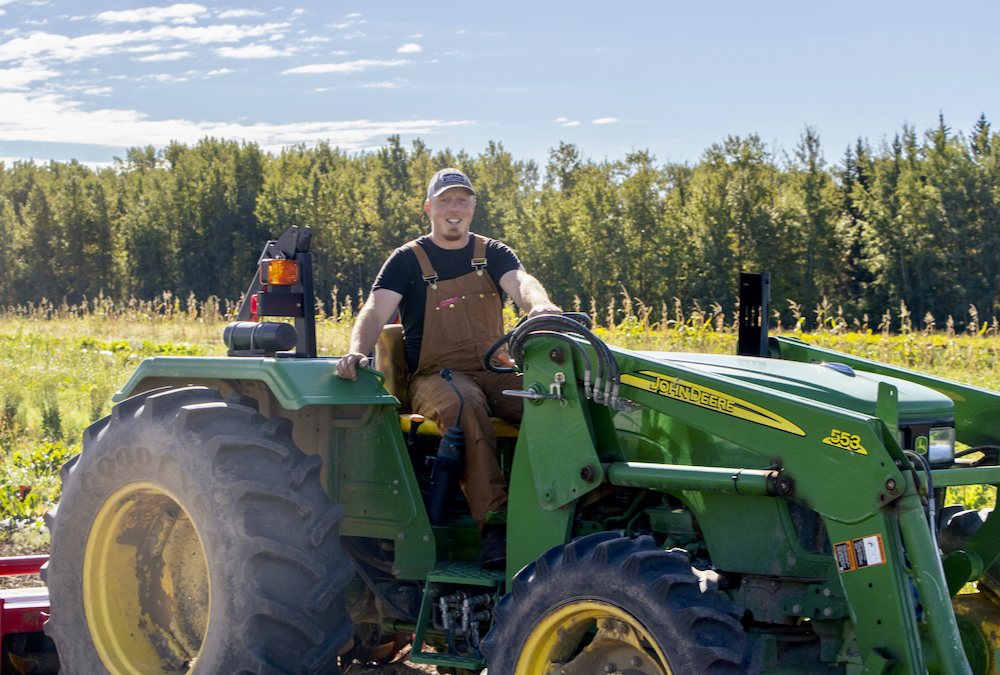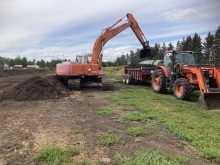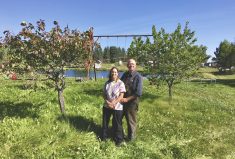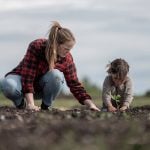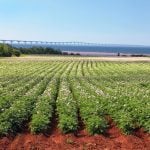Reclaim Organics is a farm with an unusual trajectory — it’s moved several times and has existed in both the city and the country.
Owner Ryan Mason grew up on a broiler breeder and grain farm near Pigeon Lake, but farming wasn’t his career goal when he headed to university.
“I had no intention of going back to agriculture,” he said.
But his studies in community and global development rekindled an interest in farming and he began talking to classmate Cathryn Sprague, who had a similar ambition to grow food.
Read Also
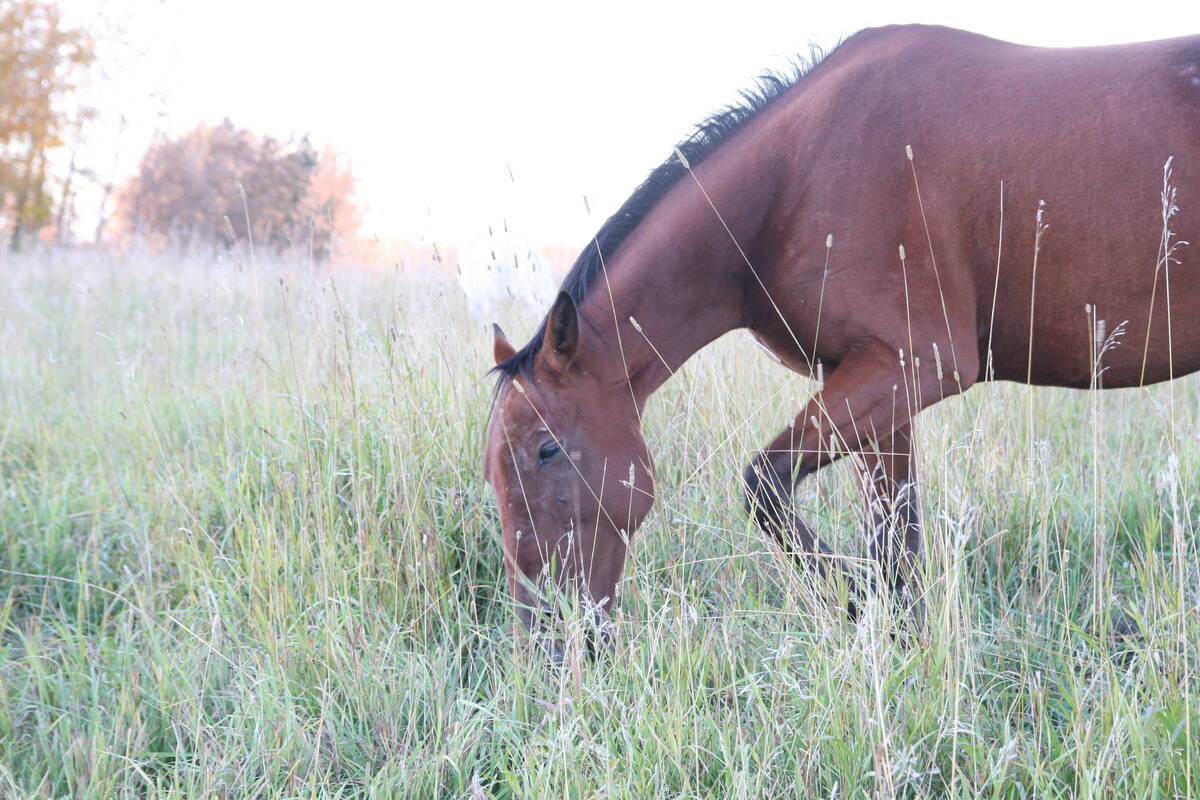
Beware giving horses too much iron
Horses consuming too much iron through diet or well water risk health problems like laminitis. Mineral testing forage and water is good practice for owners.
“She and I started the farm while we were doing our master’s (degree) to kind of pilot why we wanted to do this as a lifestyle,” said Mason. “We both had an interest in production of food. We were trying to find accessible ways to do that in the environment we were in (Edmonton), so we focused on the SPIN model, which stands for Small Plot INtensive.”
At its name suggests, this model (which started in Canada several decades ago) is focused on generating a good income by growing high-value crops on small parcels of land, typically in backyard plots.
“Most farmers don’t look at a piece of land and think about how much they can get off a square foot. It’s about how much they can get off an acre,” he said.
In 2014, Mason and Sprague found about 10 back (and front) yards to farm along with three vacant lots, and operated what was then called Reclaim Urban Farm for four seasons in Edmonton’s Whyte Avenue neighbourhood.
Having a farm with multiple urban locations had its advantages.
“If you got hail, you never got hailed out because you were spread out,” said Mason. “You had a little microclimate wherever you were — the sun changed depending on where you were. Then you had different wind patterns where buildings were taller or shorter.”
The operation started off growing baby greens, which were profitable because they could get three or four crops a season, and also green onions, baby carrots and beets, and herbs such as cilantro and dill. The duo sold their vegetables at the Edmonton Downtown Farmers’ Market, and a few restaurants. During those years, the farm moved locations four or five times, and kept expanding — including into Mason’s basement, where he grew microgreens.
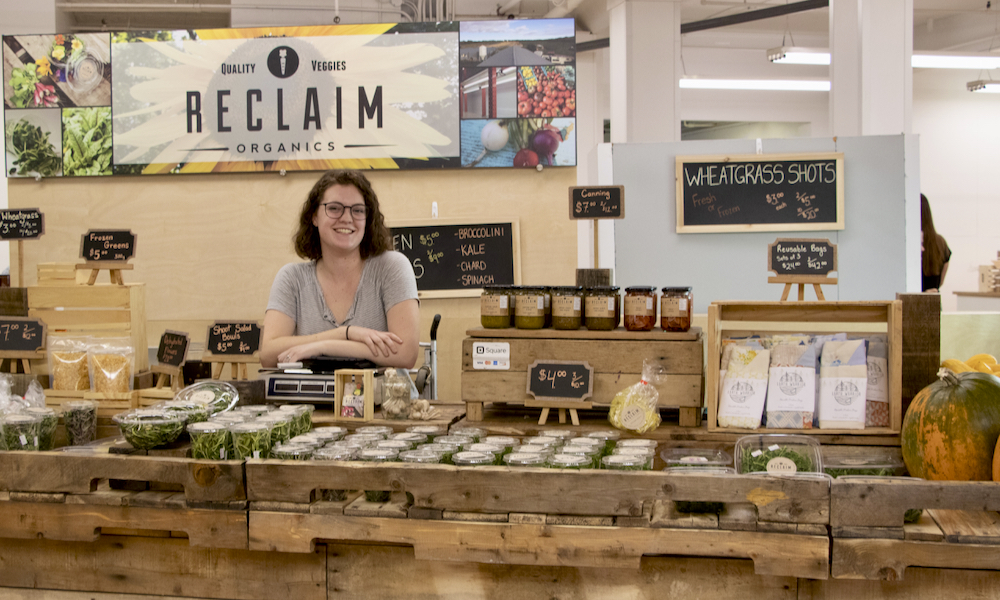
In 2017, Sprague decided to leave the business, and Mason started thinking about going back to Pigeon Lake. Family and lifestyle considerations were the main reasons but farming in an urban area was also challenging — there was opposition to practices such as composting and hoop houses as well as needing numerous permits to operate.
So in 2018, Mason moved back to the family farm, a 45-minute drive southwest of the city. The microgreens operation (which by then had expanded to a warehouse) was moved into an old chicken barn and some grain land was prepped for market gardening.
“One of our main issues was access to water and irrigation,” he said. “We had some water that we thought would work (but) it was under capacity. Scaling up irrigation was an issue.”
And the bounty of so much land led Mason down the proverbial garden path that first year.
“We went from one acre in the city to six acres out here — we quickly realized that was unmanageable for a quick scale-up, given the equipment we had,” he said. “Weed management was unbelievable. Changing conventional grain lands over one year to a market garden blew our minds at the weed pressure.”
But it was onward and upward. A dugout solved the water supply issue and the number of acres jumped to 12. And with harvesting running from mid-May to the end of October, the payroll grew as well (to two full-time staff, two part time and four more in spring and summer).
Restaurants are the farm’s biggest source of sales but since the pandemic began, Reclaim Organics has increased its sales to grocery stores and also sells at farmers’ markets and customers can buy a weekly box of veggies for the season. The farm produces 25 to 30 varieties of microgreens, about 100 market garden crops, cut flowers and some value-added products, such as relishes.
And while Mason is happy on his rural farm, he said he also misses the city.
“In an urban setting, you have people around you all the time, seeing what you’re doing, asking questions, so it’s really about changing the landscape around you,” he said. “I really miss the idea of growing food in the community.”
And the SPIN model — growing high-value crops intensively on small plots — is a route others can follow, he said.
“In urban agriculture, you can find small parcels of land and grow food and sell it,” said Mason.
But it’s a model that can also be transplanted.
“When people look at starting a farm outside the city, they think about purchasing the land, which can be a massive barrier economically to starting a farm.”
But there is also the opportunity to strike an agreement with a farmer on a long-term lease for an acre or two.
“You can take the urban model and take it into the rural areas,” he said.


